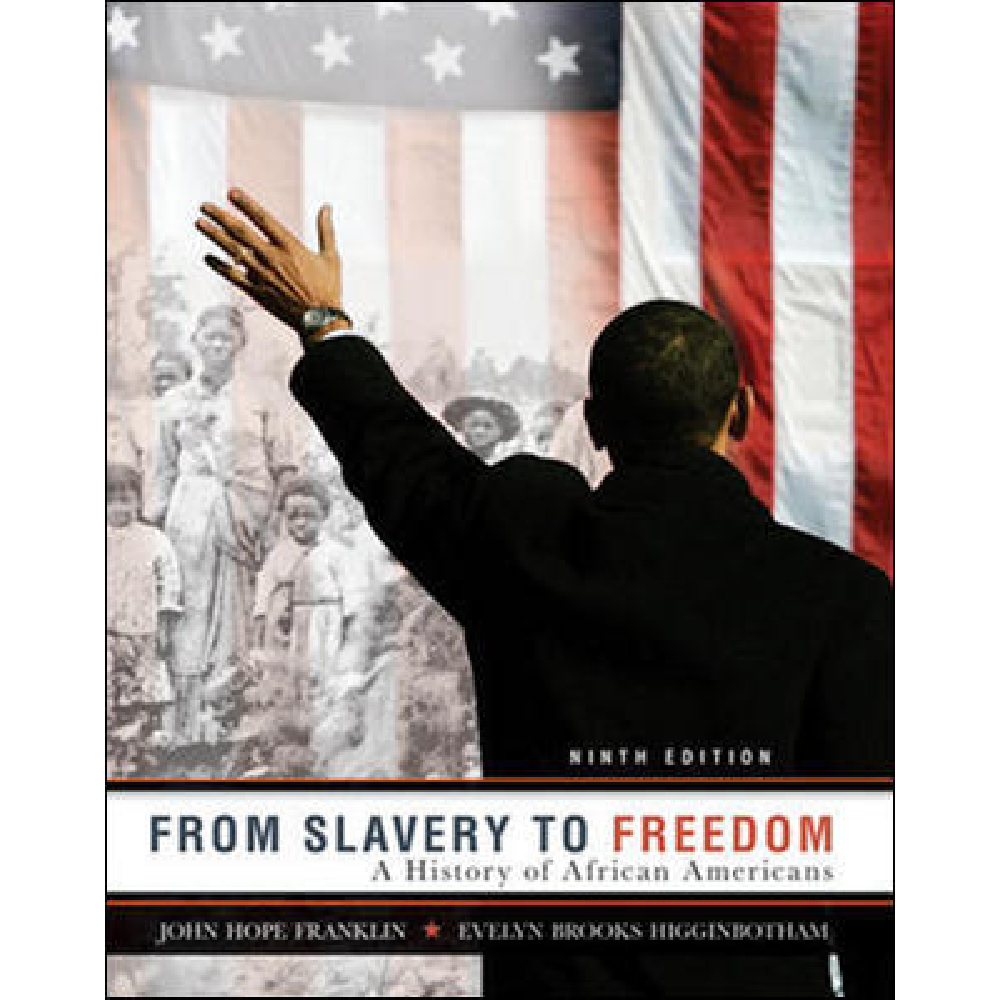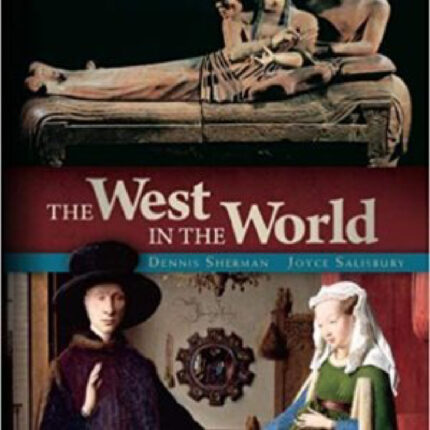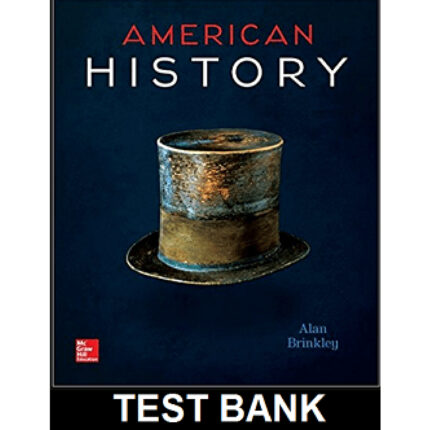Chapter 11: Promises and Pitfalls of Reconstruction
Multiple Choice
1. What effect did the ratification of the Thirteenth Amendment have on suffrage in the South?
a. It threatened to expand the influence of the southern states in the federal government by nullifying the Three-fifths Compromise.
b. It explicitly granted voting rights to black men though continuing to deny suffrage to all women, white or black.
c. It did not explicitly grant voting rights to black men, but did lessen the federal representation of states which denied the franchise to black men.
d. It cemented the dominance of the northern states by barring ex-Confederates from voting in federal elections or holding federal office.
ANS: a
Page: 236
2. Which of the following statements about Lincoln’s Reconstruction policy is LEAST accurate?
a. According to his policy, a state could return to the Union once one-tenth of its citizens who had been eligible to vote in 1860 swore an oath of loyalty to the United States.
b. Lincoln’s policy required southern states to accept the abolition of slavery as a condition of returning to the Union.
c. Lincoln insisted that southern states grant voting rights to black Union veterans as a condition of returning to the Union.
d. Lincoln granted amnesty to most former Confederates, but not to certain high-ranking government and military figures.
ANS: c
Page: 237
3. When he ascended to the presidency in 1865, Andrew Johnson
a. extended pardons to thousands of Confederates.
b. used his executive powers to punish the plantation elite whom he blamed for the Civil War.
c. became a staunch champion of freedpeople’s political and civil rights.
d. signed into law the Wade-Davis Bill which Lincoln had earlier rejected.
ANS: a
Page: 237-238
4. The Black Codes implemented by southern states under Presidential Reconstruction did all of the following EXCEPT
a. deny blacks the right to vote.
b. deny blacks the right to testify against whites in courts of law.
c. permit judges to take black children away from “unfit” parents and give them over as “apprentices” to white employers.
d. deny blacks the right to enter into contracts.
ANS: d
Page: 238
5. Which of the following statements about conditions in the South in late 1865 and early 1866 is LEAST accurate?
a. Terrorist bands of white southerners calling themselves Regulators and Jayhawkers attacked black people with impunity.
b. The U.S. Congress affirmed the policies of Presidential Reconstruction, thus allowing the worst abuses against southern blacks to continue unchecked.
c. Elections in the South in late 1865 sent dozens of leading Confederate figures to Congress, including the former vice president of the Confederacy.
d. In early 1866 the U.S. Congress repudiated the federal elections held in the South in late 1865.
ANS: b
Page: 238-239
6. All of the following groups supported the enfranchisement of southern blacks in 1866 EXCEPT
a. black and white abolitionists.
b. northern Republicans.
c. industrialists.
d. Johnson and his supporters in Congress.
ANS: d
Page: 240
7. Which of the following statements about southern blacks’ political mobilization in 1865 and 1866 is LEAST accurate?
a. Blacks held conventions throughout the South at which they demanded the right to vote.
b. Black mobilization was especially strong in cities, where it built off the existing infrastructure of churches and fraternal societies.
c. Black mobilization was strongest in those areas of the South where federal troops had the longest presence.
d. The free black urban elite completely dominated black politics, preventing the voices of rural blacks from being heard.
ANS: d
Page: 240-242
8. What was the only ex-Confederate state to be exempted from the Reconstruction Act of 1867?
a. Mississippi
b. Virginia
c. Tennessee
d. Arkansas
ANS: c
Page: 242
9. The Reconstruction Act of 1867 did all of the following EXCEPT
a. divide the ex-Confederate states into five districts governed by martial law.
b. require ex-Confederate states to appoint a certain number of black citizens to offices in the state governments.
c. require ex-Confederate states to ratify the Fourteenth Amendment as a condition of being readmitted to the Union.
d. require ex-Confederate states to hold new constitutional conventions with delegates chosen by universal male suffrage.
ANS: b
Page: 242
10. The Fourteenth Amendment divided the members of the abolitionist movement primarily because it
a. penalized states for abridging the voting rights of men but not those of women.
b. included no enforcement measures, essentially making it a dead letter.
c. failed to restore to African Americans the rights stripped from them by the Dred Scott case.
d. guaranteed naturalized citizens the same rights as native-born citizens.
ANS: a
Page: 242-243













Reviews
There are no reviews yet.